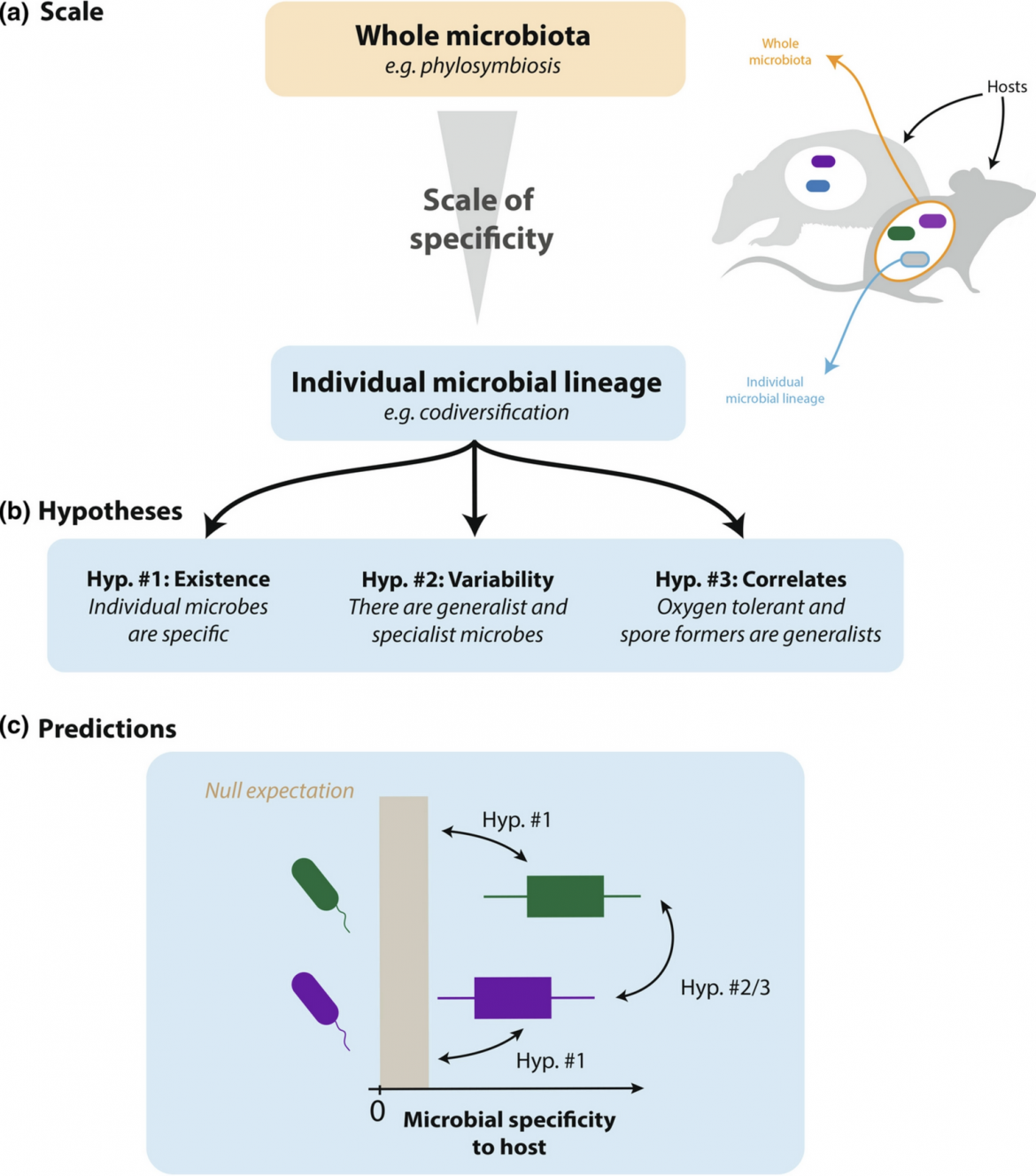
FIGURE 1. Conceptual framework of microbiota specificity to host species. (a) Microbial specificity to host species can be classified at two scales: specificity measured on the whole microbial community (light orange) and specificity measured on individual microbial lineages (light blue). (b) Three hypotheses related to individual microbial lineage specificity are proposed. (c) Examples of approaches to test these hypotheses. Individual microbial lineage specificity can be measured using, e.g., the inverse of the number of colonized host (x-axis, bottom graph). Some hypothetical value distribution (boxplots) are presented in the graphs. Random expectations for values of specificity of individual microbes are derived from null models using randomization of the data. Arrows between boxplots point out the specific comparisons that have to be made to test the hypotheses presented above. Animal silhouettes courtesy of Phylopics by Daniel Jaron and Ferran Sayol.
Florent Mazel, Antoine Guisan, Laura Wegener Parfrey. 2023. Transmission mode and dispersal traits correlate with host specificity in mammalian gut microbes. Molecular Ecology
Abstract
Different host species associate with distinct gut microbes in mammals, a pattern sometimes referred to as phylosymbiosis. However, the processes shaping this host specificity are not well understood. One model proposes that barriers to microbial transmission promote specificity by limiting microbial dispersal between hosts. This model predicts that specificity levels measured across microbes is correlated to transmission mode (vertical vs. horizontal) and individual dispersal traits. Here, we leverage two large publicly available gut microbiota data sets (1490 samples from 195 host species) to test this prediction. We found that host specificity varies widely across bacteria (i.e., there are generalist and specialist bacteria) and depends on transmission mode and dispersal ability. Horizontally-like transmitted bacteria equipped with traits that facilitate switches between host (e.g., tolerance to oxygen) were found to be less specific (more generalist) than microbes without those traits, for example, vertically-like inherited bacteria that are intolerant to oxygen. Altogether, our findings are compatible with a model in which limited microbial dispersal abilities foster host specificity.